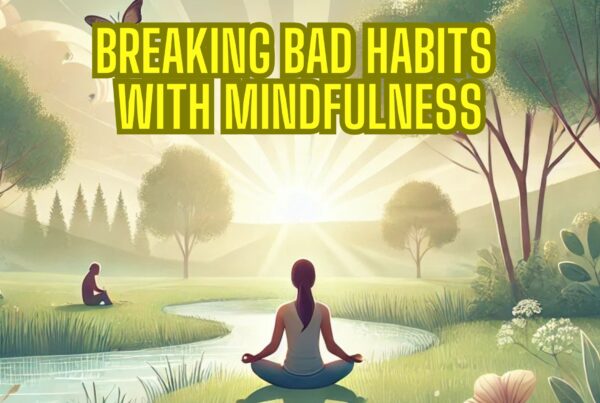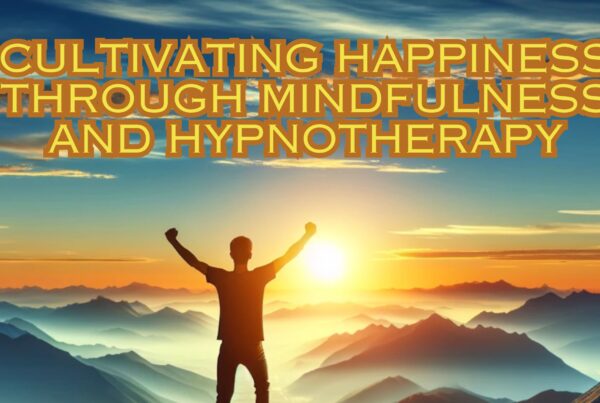What Does Eckhart Tolle’s ‘The Power of Now’ Teach Us?
Understanding the Essence of ‘The Power of Now’
Many of us find ourselves constantly caught up in thoughts about the past or worries about the future. We often forget to live in the present moment and fully experience life as it unfolds. Eckhart Tolle’s groundbreaking book, “The Power of Now,” offers profound insights and practical teachings to help us break free from the grip of our anxious minds and embrace the beauty and peace that can be found in the present moment.
The Illusion of Time and the Importance of Presence
One of the key lessons in “The Power of Now” is the recognition that time is primarily an illusion created by our minds. We tend to live in a constant state of mental time-travel, replaying past events or projecting ourselves into an uncertain future. This preoccupation with time prevents us from fully engaging with the only reality we have: the present moment.
According to Tolle, the present moment is all we truly have, and it is the gateway to inner peace and fulfillment. By cultivating presence, we can disentangle ourselves from the endless cycle of worries, regrets, and fears that often dominate our thoughts. Through mindfulness and awareness, we can learn to observe our thoughts without getting caught up in them, allowing us to experience a profound sense of freedom and clarity.
Recognising Our Ego
Tolle emphasizes the concept of the ego, which he defines as the identification with our thoughts, emotions, and self-image. The ego constantly seeks to protect itself, fueling our anxieties and causing us to suffer. “The Power of Now” teaches us to recognize the ego for what it is and to disidentify from it.
When we become aware of the ego, we can observe its patterns and tendencies without judgment. This awareness enables us to break free from the grip of our ego-driven thoughts and emotions, allowing us to experience a deep sense of peace and serenity. Tolle suggests that by identifying less with our ego, we can begin to connect with our true essence, which he refers to as our “inner Being” or “presence.”
The Pain-Body
Another concept Tolle introduces is the pain-body, which refers to accumulated emotional pain from past experiences. The pain-body can become activated in the present moment, leading to negative thoughts, uncomfortable emotions, and reactive behaviors. By recognizing the pain-body and bringing conscious awareness to it, we can dissolve its power over us and experience greater emotional well-being.
Living in Alignment with Life
“The Power of Now” also teaches us the importance of living in alignment with the flow of life. Tolle suggests that when we resist what is happening in the present moment, we create unnecessary suffering for ourselves. Acceptance and surrender to the present moment are keys to inner peace.
By embracing the present moment, we can tap into a deeper intelligence that exists beyond the limited scope of our thoughts. This intelligence guides us towards making choices that align with the greater flow of life. Tolle encourages us to trust the wisdom of the present moment and to let go of our need to control everything.
Scientific Research Supporting ‘The Power of Now’
Numerous scientific studies have shed light on the benefits of living in the present moment and practicing mindfulness, supporting the teachings of “The Power of Now.” Research has shown that mindfulness-based interventions can effectively reduce symptoms of anxiety and depression, improve emotional regulation, and enhance overall well-being (Hofmann et al., 2010; Keng et al., 2011).
Furthermore, neuroscientific studies have revealed that mindfulness practice can lead to structural and functional changes in the brain, including increased gray matter density in regions associated with attention and emotional regulation (Hölzel et al., 2011). These findings highlight the transformative potential of living in the present moment and cultivating awareness.
Embracing ‘The Power of Now’ in Your Life
Incorporating the teachings of “The Power of Now” into your life can be a transformative journey. Start by simply bringing your attention to the present moment throughout your day. Observe your thoughts and emotions without judgment, and allow yourself to fully experience the beauty and richness of each moment.
Practice mindfulness meditation regularly to deepen your presence and cultivate a greater sense of inner peace. Set aside dedicated time each day to sit quietly, focusing your attention on your breath or the sensations in your body. Allow your thoughts to come and go, returning your focus to the present moment whenever you notice your mind wandering.
Remember, the present moment is where life truly unfolds. By embracing the power of now, you can overcome anxiety, uncomfortable thoughts, and feelings, and discover a profound sense of peace and fulfillment in every aspect of your life.
Purchasing ‘The Power Of Now’
You can purchase ‘The Power of Now’ from Amazon in Kindle and Paperback, and from Audible in audiobook format.
Download your FREE Mini-Mindfulness Meditation by simply clicking here.
Book Your FREE 30 Minute Consultation With Release Hypnosis NOW!
You may also like to read:
Discovering Purpose and Values: A Path to Mental Well-being
Can’t Visualise in Hypnosis? Here’s What You Can Do Instead.
Release Hypnosis Celebrates 8 Years!
What Is The Success Rate of Hypnosis?
Release Hypnosis Melbourne Hypnotherapy is accessible for people in: Abbotsford, Armadale, Albert Park, Balwyn, Bentleigh, Black Rock, Box Hill, Brighton, Brunswick, Bulleen, Bundoora, Camberwell, Canterbury, Carnegie, Caulfield, Chadstone, Cheltenham, Clayton, Coburg, Collingwood, Deer Park, Doncaster, Elsternwick, Eltham, Elwood, Epping, Essendon, Fairfield, Fitzroy, Footscray, Glen Iris, Glen Waverley, Glenhuntly, Greensborough, Hampton, Hawthorn, Heidelberg, Highet, Ivanhoe, Kew, Kooyong, Lalor, Laverton, Lower, Plenty, Macleod, Malvern, Middle Park, Moonee Ponds, Melbourne, Moorabbin, Mount Waverley, Murrumbeena, Northcote, Oakleigh, Ormond, Parkville, Pascoe Vale, Port Melbourne, Prahran, Preston, Richmond, Rosana, Sandringham, South Yarra, South Melbourne, Spotswood, St Albans, St Kilda, Surrey Hills, Templestowe, Thornbury, Toorak, Tullamarine, Williamstown, Yarraville, North Melbourne, Windsor, East Melbourne, Melbourne, Melbourne CBD, Melbourne 3004








